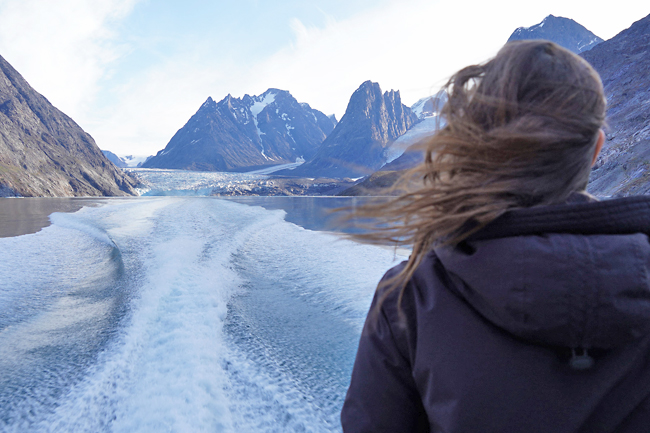MANIITSOQ (AFP) – A frozen landscape with breathtaking views, Greenland wants to attract more tourists, but its remote location and fragile environment – which make it a unique destination – also pose challenges.
“The effects of global heating are at their most pronounced in the Arctic,” University of Canterbury professor and tourism expert Michael Hall told AFP.
Global warming is accelerating “the loss of Arctic sea ice in summer, (as well as) the melting of permafrost, ice shelves and glaciers”, he said, referring to elements that contribute to the island’s uniqueness.
Across Greenland, locals are witnessing first-hand the effects of global warming.
On the southwestern coast, in Maniitsoq, the sea ice has not been solid enough to walk on since 2018. Residents have also seen it shrink from year to year, in addition to less abundant snowfalls.
Tourists are nonetheless awestruck by the vistas.
“It’s terra incognita,” said Amy Yankovic, a 55-year-old American tourist.
The Texan native travelled for almost 24 hours to get to Greenland, taking three connecting flights.
Tourism accounts for around eight per cent of global greenhouse gas emissions, according to the United Nations, most of which is attributed to transportation.

There is “a kind of ‘last-chance tourism’, where visiting these endangered sites is about wanting to see them before they disappear”, said geography lecturer at the University of Toulouse in France Emmanuel Salim.
He said similar destinations such as Churchill in Canada – known as the “polar bear capital of the world” – “have tried to position themselves as places for ‘learning’ about the environment”.
But while such destinations can raise awareness about better environmental practices, their carbon footprints continue to rise, he lamented.
Developing tourism in a fragile environment is a tricky balancing act.
“Mitigation of the impacts of global heating on the Arctic is a global responsibility,” said Hall, adding that “current mitigation attempts are greatly inadequate.”
Greenlandic authorities insist they want a prudent development of the tourism sector, in order to create jobs. “In recent years we’ve seen that young people have started to become tour operators,” Maniitsoq mayor Gideon Lyberth told AFP.
“We’re very, very happy, because young people have been leaving here for Nuuk, to live there, but now they’re coming back,” he said.
“Clearly such developments will usually be seen as a good idea, at least in the short term,” Hall said.



















































